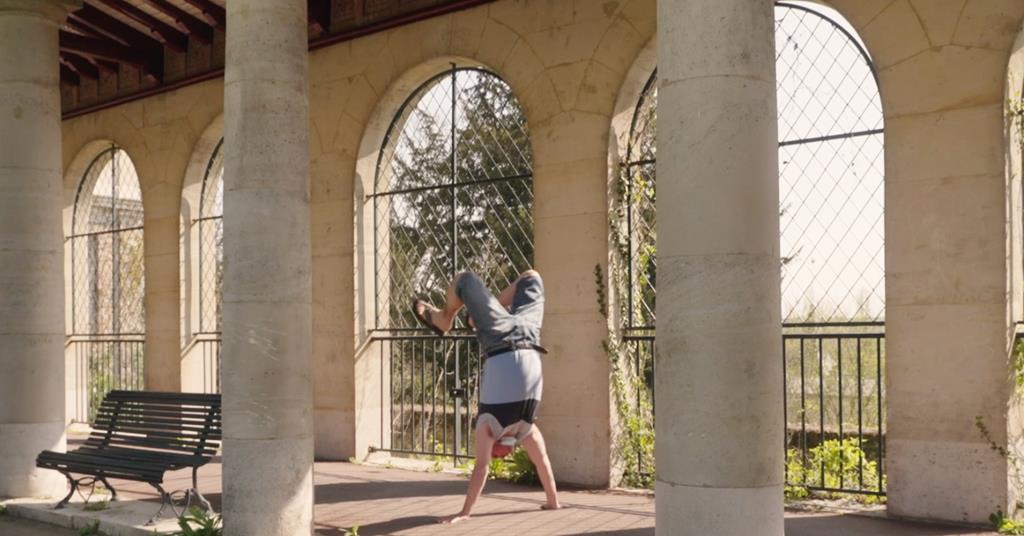Dir. Nicolas Philbert. France 2024. 143mins
Vetern documentarian Nicolas Philibert brings his focus to the Esquirol Hospital in Saint-Maurice close to Paris; particularly, two psychiatric models named after the Islamic thinker and mathematician Avveroes and American civil rights icon Rosa Parks. The second in a projected trilogy following final 12 months’s On The Adamant, it’s a extra austere movie, its energies far more introverted – with contents that, at occasions, are altogether harrowing.
An extraordinarily completed and compelling work
On The Adamant deservedly received Berlin’s Golden Bear, absolutely partially as a result of the movie was so uplifting: an affirmative, compassionate depiction of a Parisian psychological well being facility and its persistence. Celebrating an enlightened, culture-based method to psychiatric care, On the Adamant was in the most effective sense – if such a factor is possible – a feelgood movie about psychological sickness. At Averroès & Rosa Parks, which premiered in Berlinale Particular, is a harder watch than its predecessor, however a particularly completed and compelling work, the newest chapter in a formidable documentary profession that features such works as Etre Et Avoir and 1997 psychiatric clinic research Each Little Factor.
The movie begins with a panoramic drone shot scanning the grid-like building of the huge constructing, with a employees member watching the footage and noting that, like so many French institutional buildings of the interval, it resembles a jail; certainly the edifice, initially constructed within the 18th century, dates from a time when psychological establishments had been certainly extra akin to prisons.
The place On The Adamant highlighted the collective cultural actions of a day centre on the Seine, this sequel largely contains a set of consultations between employees members and resident sufferers (a few of whom are quickly to be discharged, and who’re suggested by docs to make use of the assets of the Adamant). Philbert’s unobtrusive digital camera sometimes retains to a shot-reverse-shot sample in medium, with the occasional close-up; one sequence has a girl apparently speaking to somebody behind the digital camera, however the movie largely maintains its observational detachment, listening in on the sufferers’ accounts of their experiences, and the docs’ questions and feedback.
If On The Adamant got here throughout as a set of fascinating character research, the detachment of its sequel provides extra of a list of sorts of psychological sickness. The dialogues between sufferers and carers – who come throughout as eminently empathetic, albeit to various levels – reveal the sort of stresses and challenges confronted by mentally ailing individuals each within the wider world and inside the psychiatric system into which they’re usually painfully conscious of getting been absorbed.
Among the many individuals we meet are Monsieur Obadia, about to be discharged, who’s being supplied short-term shared lodging within the metropolis, however whose considerations – about his personal non secular remark as a Jew, and in regards to the French authorities with its coverage of secularity – leads him to counter each suggestion with anxious objections. Then there’s Olivier, a younger man with studying difficulties, who’s confused about his household relations, satisfied that different individuals’s daughters are his and that his lifeless father and grandfather are current on the hospital within the type of different individuals (though on the similar time, he appears absolutely conscious of everybody’s actual identification).
If there’s a person on this movie who significantly fascinates, it’s middle-aged Noé, first glimpsed making transient feedback in a handful of group dialogue scenes. In the direction of the top of the movie, Noé has a person assembly with two employees members and explains his historical past as a Jewish Buddhist, an idealistic increased schooling instructor affected by burnout, a dissenter from the French tutorial system, and a self-confessed “megalomaniac” and “metapsychic chameleon” who identifies very carefully with the thinkers he reads (“I turned Nietszche”). Not that that is Philibert’s intention, however Noé, like a number of regulars on the Adamant, may simply have been topics of complete options.
Whereas the prolonged Noé sequence may need made an uplifting conclusion – exhibiting psychological sickness in a very vibrant and, it appears, inventive kind – Philibert refuses us apparent consolations by following it with the second of two sequences with a profoundly troubled, indignant aged lady named Laurence. This give the movie a decidedly completely different inflection, revealing the extremes of psychological struggling in a bleakly lifelike vogue. These sequences, nonetheless, additionally increase thorny questions of consent and intrusiveness; related points had been raised again in 1967 by one other psychological establishment documentary, the controversial Titicut Follies, by Philibert’s kindred spirit Frederick Wiseman.
In addition to the odd briefly-shown group assembly and exercise, punctuating photographs present the corridors and courtyards of the Esquirol Hospital, together with the monastic-looking cloisters which might be traces of the constructing’s much less enlightened early days. Aalthough that is by no means commented on, the hospital was previously referred to as the Charenton asylum, in its day housing such eminent sufferers because the poet Verlaine and the Marquis de Sade.
Manufacturing corporations: TS Productions
Worldwide gross sales: Les Movies du Losange gross sales@filmsdulosange.fr
Producers: Miléna Poylo, Gilles Sacuto, Céline Loiseau
Cinematography: Nicolas Philbert
Editors: Nicolas Philbert, Janusz Baranek
